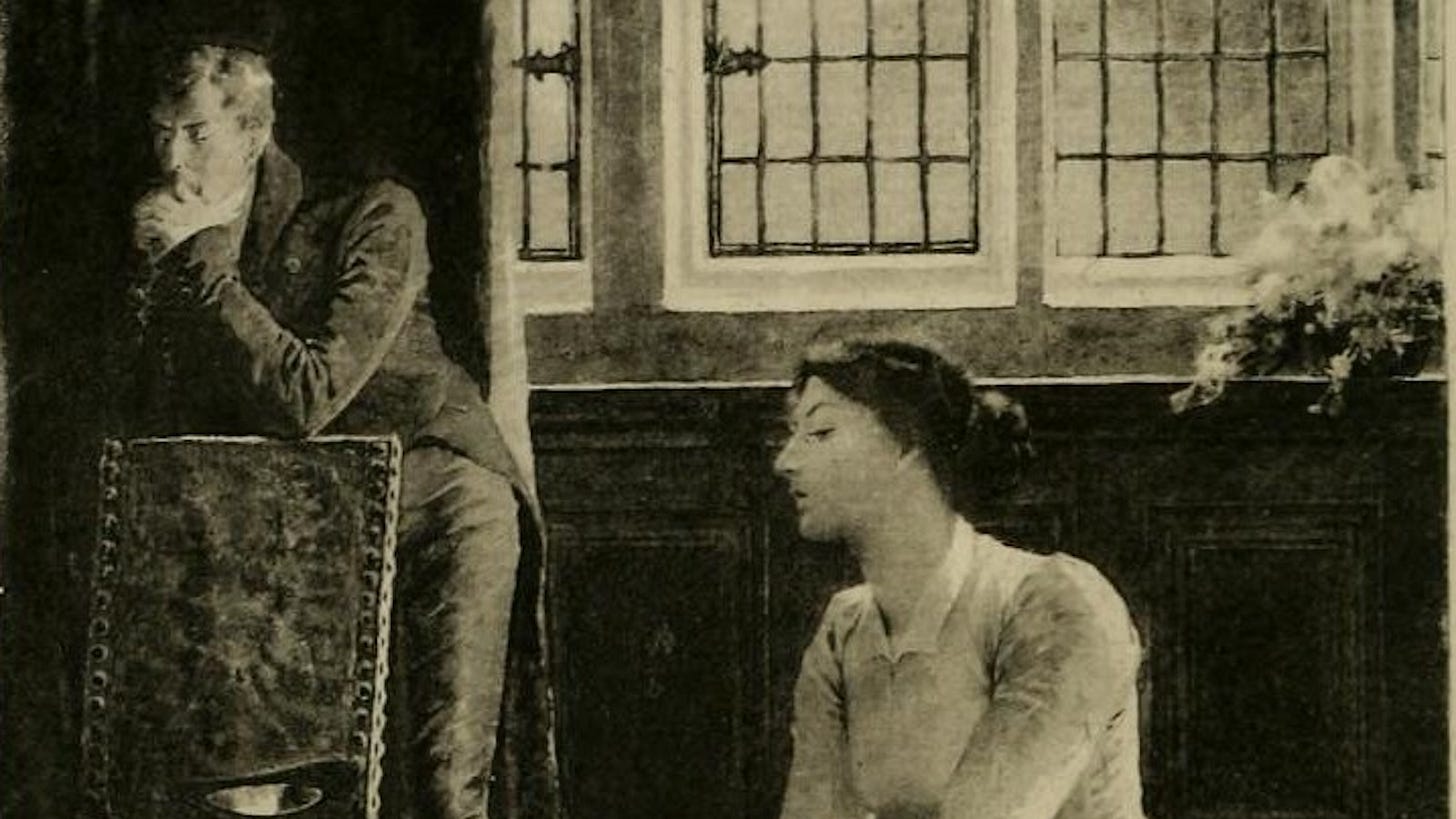I started reading 'Middlemarch'
A few words about sentences
I don’t consider myself a great writer. Not even a good writer, if we’re using the word to really mean something. A serviceable writer; capable. This isn’t false modesty, or an expression of my general lack of self-confidence—though, I’m sure there’s some of that in there—but a plain fact about my skills with words, which are developed to a degree, but not so artful as I’d like, and not so controlled, either. I know this, because I know what I want to say, and the words I write rarely say it completely. Whatever soul exists in sentences, which can convey so much more than the number of words and punctuation marks forming them would naturally indicate, is seen faintly in what I do. Perhaps that’s why I’ve taken up journalism—and criticism, I suppose—to avoid concerning myself with soul when simple, clear communication will do. A fancy sentence or a clever turn of phrase go a long way in that context. They almost make me seem like a good writer, some of the time.
So I cracked open Middlemarch, by George Eliot, last night—and by “cracked open” I mean turned on my Kobo and selected the ebook and advanced through the copyright pages and skimmed the author bio and introduction—and within a page, I was gobsmacked. I literally had to pause to take it in. “Is this the best thing I’ve ever read?”
That Spanish woman who lived three hundred years ago, was certainly not the last of her kind. Many Theresas have been born who found for themselves no epic life wherein there was a constant unfolding of far-resonant action; perhaps only a life of mistakes, the offspring of a certain spiritual grandeur ill-matched with the meanness of opportunity; perhaps a tragic failure which found no sacred poet and sank unwept into oblivion. With dim lights and tangled circumstance they tried to shape their thought and deed in noble agreement; but after all, to common eyes their struggles seemed mere inconsistency and formlessness; for these later-born Theresas were helped by no coherent social faith and order which could perform the function of knowledge for the ardently willing soul. Their ardour alternated between a vague ideal and the common yearning of womanhood; so that the one was disapproved as extravagance, and the other condemned as a lapse.
That is the second paragraph of Middlemarch, from its prelude, which briefly examines the life of Saint Theresa, using her as a model of a kind of femininity, but more of a window, really. Middlemarch is not about Theresa, after all, nor her saintly martyrdom. “Out they toddled from rugged Avila, wide-eyed and helpless-looking as two fawns, but with human hearts, already beating to a national idea; until domestic reality met them in the shape of uncles, and turned them back from their great resolve,” Eliot writes of Theresa, age 7, and her little brother running away from home to fight the Moors. There’s assumed knowledge here, but it matters little, because all one need know is found in the sentence itself, its sense of adventure and romance, which Eliot punctures by dint of “domestic reality” intruding. In the next paragraph, the thrust of Middlemarch is elucidated, drawing from Theresa’s story, the image of her sainted figure, to comment on the then contemporary place of women. Women of a certain kind, whose “ardour alternated between a vague ideal and the common yearning of womanhood,” but also women broadly. There’s universalism in the connection, which places the condition of womanhood within the context of social oppression. The competing wants of any human being, where “one was disapproved as extravagance, and the other condemned as a lapse.” A catch-22.
I made it past the short prelude, all the way through the book’s first chapter, with its introduction of Miss Dorothea Brooke, and her sister Celia. I had to stop again once I’d completed it. I re-read it. Sentence after sentence of the most splendid verbiage, and insights, too. “Sane people did what their neighbours did, so that if any lunatics were at large, one might know and avoid them,” she writes. Such observations about the world are immediately true, and as description of early 19th century society lands with due profundity. Pithiness as world construction. Eliot’s read on character is even more stunning. “Celia’s face had the shadow of a pouting expression in it, the full presence of the pout being kept back by an habitual awe of Dorothea and principle; two associated facts which might show a mysterious electricity if you touched them incautiously.” I think I re-read that sentence six or seven times while going through the chapter—and several more times now—marvelling at its movement from in-the-moment scene description, toward an understanding of Dorothea and her relationship with her sister that would need no more words, except that the words are so beautiful. One can’t help being compelled to the next.
There’s not much more I have to say about Middlemarch, because as I explained, I am only one chapter in. Still, I had to share it. No news is being broken here, about the book, or about Eliot, or about what great writing can look like. I only urge you to join me in reading it if you haven’t already. Re-read it, if you like. Luxuriate with me in the sentences Eliot crafts. Few things are more satisfying, I can already attest.


